Have you ever felt stuck trying to boost your website’s visibility? You’re certainly not alone in this challenge. Mastering the art of keyword research is a critical component in attracting more traffic and enhancing online presence.
This is a strategic approach to knowing what your audience is looking for, not just finding words. The appropriate keywords might help you bridge the gap between your content and the customers looking for it.
This is where keyword research tools play a pivotal role. They offer insights into popular search phrases, competition levels, and trends, making them vital for increasing the position of your website.
Let’s get in!
The Role of Keyword Research in SEO
Impact on Website Visibility
Keyword research is the foundation of SEO. It’s like using a map to guide travellers to a destination. By understanding what words or phrases people commonly search for, websites can align their content to these terms.
This alignment increases the chances of appearing in search results when users enter those specific keywords. It’s not just about traffic; it’s about getting the right audience on your e-commerce website hosted on a shared server hosting.
Keywords and Search Engine Algorithms
Search engines use complex algorithms to sift through billions of web pages and find the most relevant ones for a user’s query. Keywords are the hints that help these algorithms understand what a page is about.
When your website’s content closely matches the keywords people are searching for, search engines are more likely to consider your content relevant. This relevance is key to ranking higher in search results, making your site more visible and accessible to potential visitors.
Looking for Fast WordPress Hosting?
For the best hosting experience, consider Ultahost’s Fast WordPress hosting. Tailored for performance and ease, it offers fast, secure, and user-friendly services, ideal for elevating any WordPress site.
Top 7 Keyword Research Tools
Here are the top 7 keyword research tools to increase your website’s ranking.
Google Keyword Planner

Google Keyword Planner, a feature within Google Ads, is vital for keyword research in SEO. It excels in providing real-time data from Google’s extensive search database.
Key features include:
- Search volume analytics
- Trend analyses
- Cost estimates for ad campaigns
Its significant benefits lie in its accuracy and direct integration with Google Ads, making it ideal for advertisers and marketers.
However, it’s less comprehensive for organic SEO strategies and requires a Google Ads account. This tool best suits those initiating paid search campaigns or seeking precise keyword data for targeted marketing efforts.
SEMrush
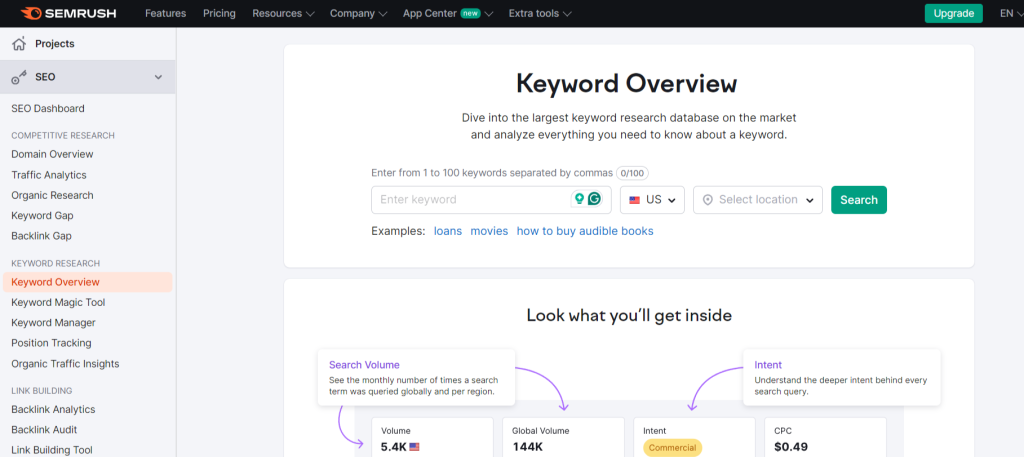
SEMrush is a dynamic SEO tool widely recognized for its depth and versatility. It offers a rich suite of features, including keyword research, site audits, and competitive analysis, making it a favourite among SEO professionals.
Key benefits include its ability to:
- Find valuable keywords
- Track website rankings
- Analyze competitors’ strategies.
While its comprehensive features are a major plus, beginners might find its interface a bit overwhelming. Ideal for marketers and SEO experts, SEMrush is perfect for those looking to get deep into SEO data and insights.
Ahrefs

Ahrefs stands out for SEO. It’s a powerful tool, loved for its in-depth site audits and keyword research capabilities. Key features include:
- Tracking rankings,
- Monitoring backlink profiles
- Analyzing competitors.
This makes Ahrefs beneficial for gaining insights into your website’s search engine ranking and performance and strategizing accordingly.
Conversely, Ahrefs can be expensive, and its amount of data might overwhelm beginners. It’s ideal for SEO professionals and marketers who need detailed analytics to craft advanced SEO strategies.
Moz Keyword Explorer
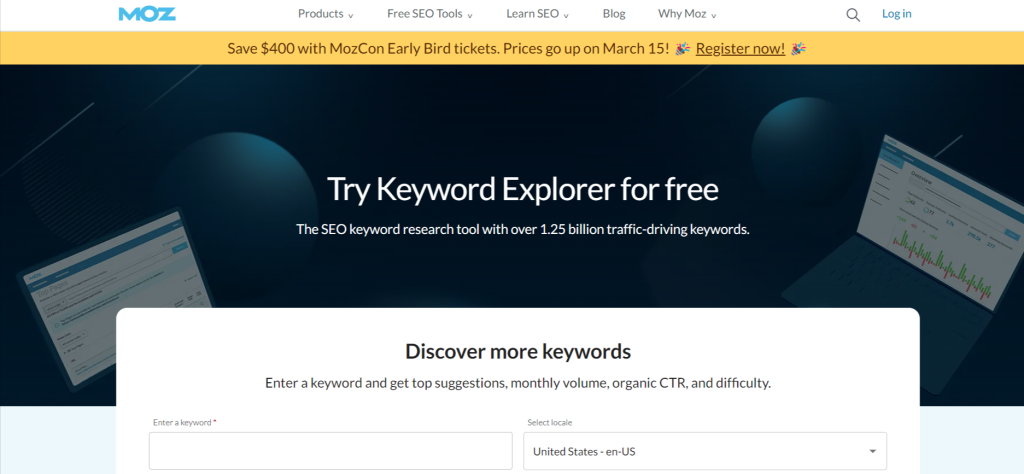
Moz Keyword Explorer is a dynamic tool designed for effective keyword research. It simplifies finding the right keywords, which is crucial for your WordPress hosting website.
Key features include accurate search volume data, keyword suggestions, and SERP analysis. A unique benefit is its Keyword Difficulty score, which offers insights into how hard it would be to rank for a specific keyword.
However, it has limitations in terms of fewer keyword suggestions compared to some competitors. This tool is ideal for marketers and content creators seeking reliable, easy-to-understand SEO insights, particularly those new to SEO or with limited time for extensive research.
Ubersuggest
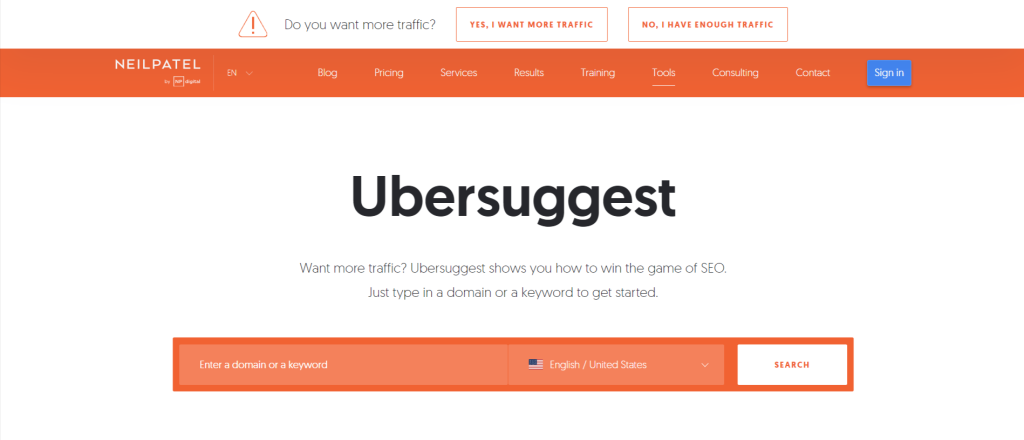
Ubersuggest, developed by digital marketing expert Neil Patel, is a dynamic keyword research tool that’s both user-friendly and insightful. Its key features include:
- Generating a wide range of keyword suggestions
- Providing search volume data
- Offering insights into the level of competition for specific keywords.
What sets Ubersuggest apart is its ability to offer a clear view of potential traffic and keyword difficulty, making it a favourite for both beginners and seasoned marketers. While it’s highly beneficial for initial keyword research and content planning, its free version has limitations in search queries and detailed analysis.
Ubersuggest is ideal for small business owners, bloggers, and freelance digital marketers who need a straightforward, efficient tool for improving their website’s SEO without deep-diving into more complex data.
KW Finder
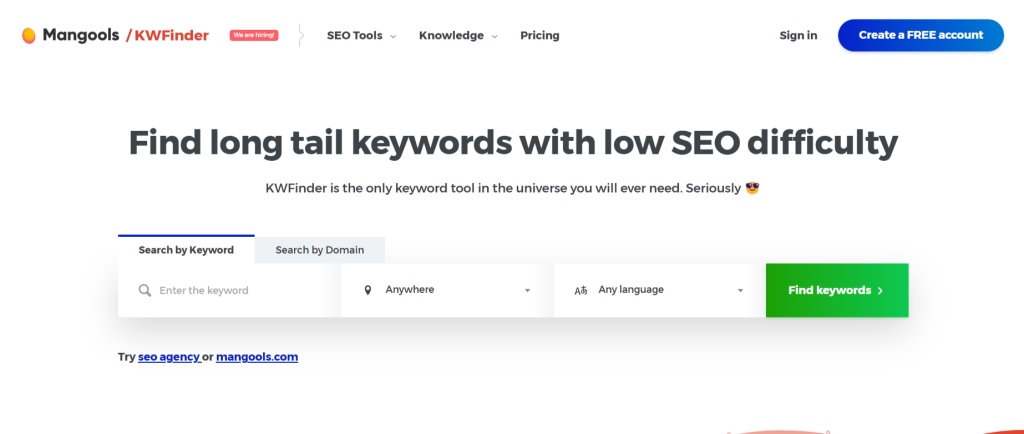
KW Finder excels in uncovering niche, long-tail keywords with lower competition, ideal for specialized markets. It offers a clean, intuitive interface, making keyword research straightforward, even for beginners.
Key features include:
- Detailed search volume data,
- Trends
- The ability to find keywords in multiple languages.
The tool stands out for its precise keyword difficulty scores, aiding in selecting attainable targets. However, its limitation lies in fewer keyword suggestions compared to some rivals. Perfect for small business owners and bloggers, KW Finder helps focus on specific niches, enhancing content visibility in less competitive areas.
SpyFu
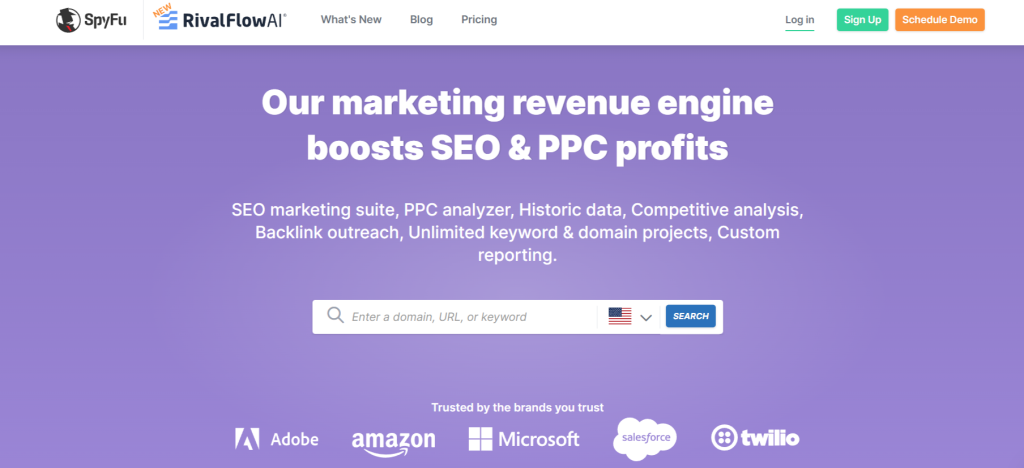
SpyFu specializes in competitive analysis, giving insights into competitors’ search strategies and ad campaigns. It reveals competitors’ organic and paid keywords, tracks their ranking history, and offers comprehensive PPC data.
SpyFu’s strength lies in detailed competitor data, making it invaluable for market analysis. However, its specialized focus may be less beneficial for broader SEO tasks.
It is perfect for marketers and businesses aiming to understand and outperform their competition, especially in designing effective PPC campaigns and optimizing blogs and keyword strategies.
Each of these tools has its own strengths and specialities, and the best choice often depends on your specific needs, budget, and the level of detail you require for your SEO strategy.
Tips for Using Keyword Research Tools Effectively
- Define Your Goals: Understand what your audience is searching for. This helps in focusing your keyword research effectively.
- Balance Keyword Volume with Competition: Don’t just aim for high-volume keywords; they often have high competition. Balance your strategy by including long-tail keywords that are more specific and can drive targeted traffic.
- Context is Key: Adapt your keyword strategy to the context of your site. The same keyword might work differently for different sites.
- Understand Search Intent: Determine whether people are searching for information or looking to purchase. This will guide your content strategy to meet user needs.
- Monitor Trends: Keep track of changing keyword trends, as keywords can vary with seasons and current events. Use tools that provide trend analysis to stay updated.
- Use Long-Tail Keywords: They are less competitive and more specific, making them ideal for attracting a targeted audience.
- Analyze and Adapt: Regularly analyze the performance of your chosen keywords and adapt your strategy as needed for ongoing optimization.
- Avoid keyword Cannibalization: To avoid keyword cannibalization, focus each page on a unique topic or keyword to ensure clear, distinct content targeting.
Final Thoughts
In conclusion, utilizing these keyword research tools effectively can significantly enhance your website’s ranking. By carefully selecting and strategically applying keywords, you’ll attract more relevant traffic and gain a competitive edge.
SEO optimization requires a fast and reliable hosting platform. You will find it in UltaHost’s offer. Choose SEO VPS Hosting and get 24/7 support from our support team. Our powered infrastructure focuses on auto-scaling, performance, and security. Let us show you the difference! Check out our plans!
FAQ
How do keyword research tools help improve website ranking?
Keyword research tools analyze search data to identify popular and relevant keywords. They help optimize the website content to match what people are searching for, thus improving the website’s visibility and ranking on search engines.
Can keyword research tools help in finding niche-specific keywords?
Yes, most keyword research tools provide features to find niche-specific keywords. These tools can filter keywords based on industry, search intent, or competition level, making targeting specific audiences easier and improving relevance in niche markets.
How often should I do keyword research for my website?
Keyword research should be an ongoing process. Regular research helps to stay updated with market trends, audience interests, and changes in search engine algorithms. It’s recommended to revisit keyword research at least quarterly or whenever updating website content.
Are there free keyword research tools that are effective for beginners?
Yes, several free keyword research tools are great for beginners, such as Google Keyword Planner, Ubersuggest, and AnswerThePublic. These tools offer basic functionalities suitable for keyword research and SEO strategy development.








